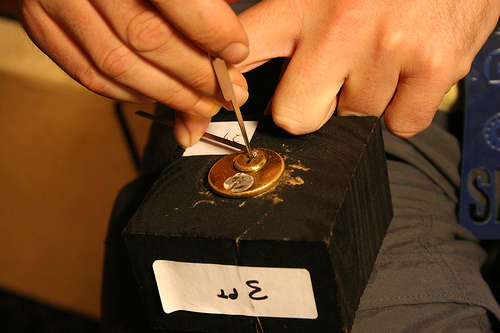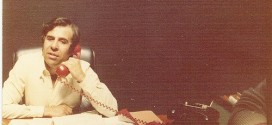 There are skills, qualities and traits in business that appear to be inherent or based on wisdom, rather than capable of being more rapidly learned. By thinking in this way we fail to sufficiently challenge ourselves to analyse how to learn these skills, qualities and traits. Intuition in decision making is one of the leading examples where perfectly rational business leaders will mix references to gut instinct, wisdom and the unconscious and then rapidly box the area up as being something that ‘will come over time’
There are skills, qualities and traits in business that appear to be inherent or based on wisdom, rather than capable of being more rapidly learned. By thinking in this way we fail to sufficiently challenge ourselves to analyse how to learn these skills, qualities and traits. Intuition in decision making is one of the leading examples where perfectly rational business leaders will mix references to gut instinct, wisdom and the unconscious and then rapidly box the area up as being something that ‘will come over time’
This is not acceptable because it is in direct conflict with the otherwise totally logical approach to the rest of the aspects of running a business. To be clear though, the objective is not to apply logic and rationalism to everything in business decision making – too much of this already happens. No, this is a call to take control of something normally dismissed as uncontrollable.
‘Intuition as recognition’ involves the development of expertise in business decision making. Consider the following from scientist Herbert Simon, “The situation has provided a cue; this cue has given the expert access to information stored in memory, and the information provides the answer. Intuition is nothing more and nothing less than recognition”
So how do you develop this expert recognition? First we need to consider another area with similarities to intuition in decision making: natural talent.
The concept of deep practice has been discussed over recent years as being key to success in any niche. Whether sports, music or any other field, requirements for your success have been clarified: 10,000 hours practice. This 10,000 hours has to be uncomfortable practice where you’re only ever focusing on what you find hard or needs improvement. This 10,000 hours is the hard work required to overshadow the initial benefits that natural talent gave you.
Business is no different. The interesting observation is that you quickly rack up the 10,000 hours practice because you probably have to work to live. It’s how you approach this opportunity to be an expert that differentiates the business superstars.
Do you strive for the uncomfortable within your role? Are you now CEO of another company specializing in the same sector you’ve always worked in? How do you constantly challenge yourself in terms of thinking and actions?
This is where you can get a conflict between discomfort and niche. How do you hone your skills and challenge your thinking whilst deepening the niche practice that enables the development of your business intuition?
‘Uncomfortable learning’ is an odd phrase, but serves our purposes as an answer. Uncomfortable learning covers both the development of expert recognition as well as the development of skills and challenging thinking.
You need to create a personal development plan using uncomfortable learning as a guide:
- Identify the top 3 CEO/ founder or entrepreneurial skills that you think are vital to be the best leader you can be. Assess yourself using a leadership skills tool if you need help.
- Agree with a coach or mentor how you can create a programme of skills development and practice that stretches you. This may involve seeking specialist roles in sector or learning new skills in a more generalist role out of sector. Equally this may involve doubling-down on your effort within your niche to deepen your volume of experiences to enhance your expert recognition.
- Put in place stretching goals and targets, as well as the framework to manage your compliance with your commitments. This looks like public commitments, appointed task masters and your investment of your time and attention to an agreed schedule.
- You then need to work to your plan
By creating a personal development plan using uncomfortable learning as a guide, you very quickly get an insight into why expertise and niche superstardom are uncommon. To achieve them is hard, unpleasant and requires strong emotional control: not the things that a normal executive seeks out, let alone plans to experience.
If you’re not already a subscriber, subscribe below if you want to find out more about being challenged to achieve business stardom:
 Constant Mentor Goal Setting & Interventions for Leaders
Constant Mentor Goal Setting & Interventions for Leaders




